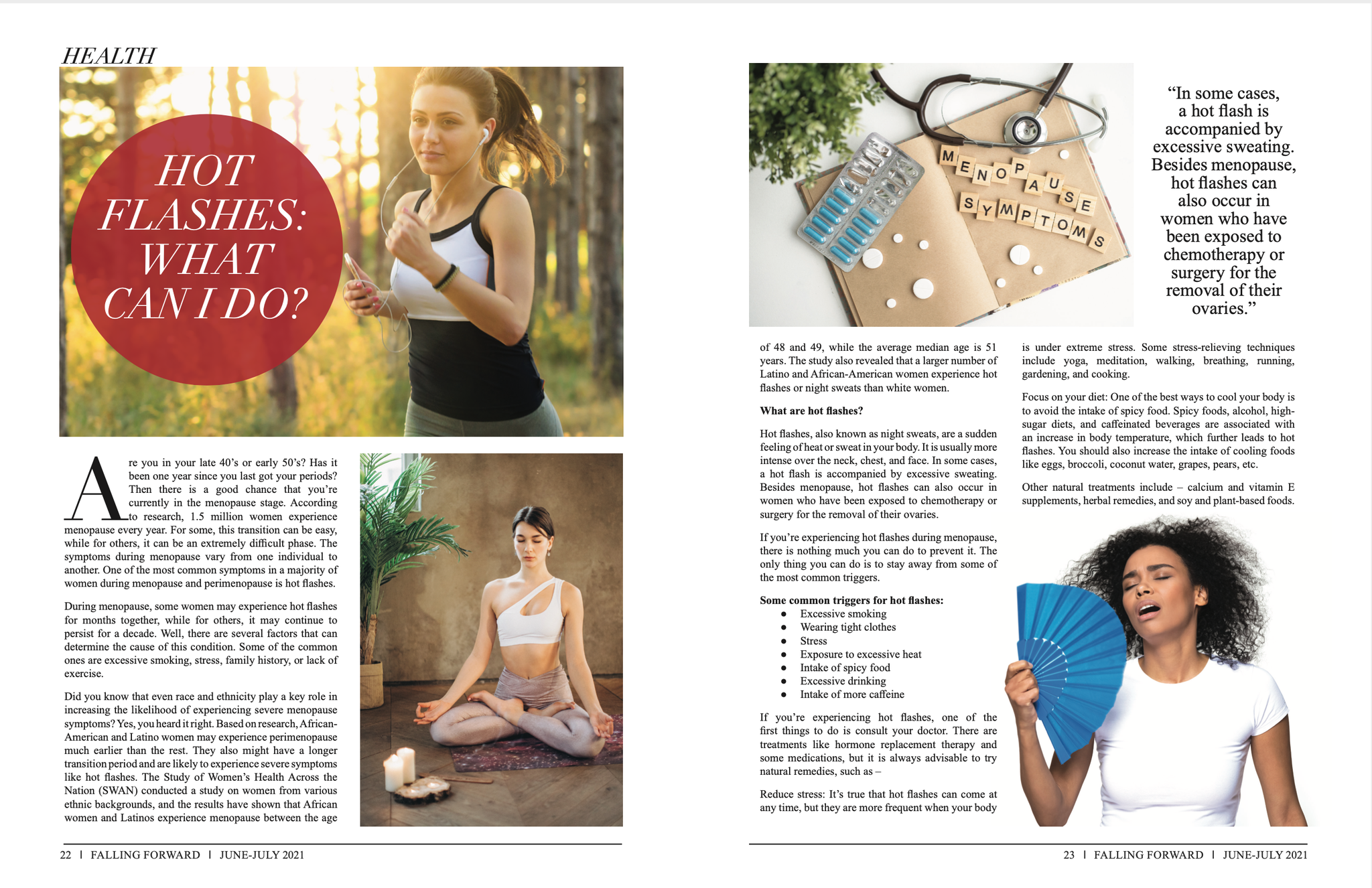Hot Flashes: What Can I Do?
Are you in your late 40’s or early 50’s? Has it been one year since you last got your periods? Then there is a good chance that you’re currently in the menopause stage. According to research, 1.5 million women experience menopause every year. For some, this transition can be easy, while for others, it can be an extremely difficult phase. The symptoms during menopause vary from one individual to another. One of the most common symptoms in a majority of women during menopause and perimenopause is hot flashes.
During menopause, some women may experience hot flashes for months together, while for others, it may continue to persist for a decade. Well, there are several factors that can determine the cause of this condition. Some of the common ones are excessive smoking, stress, family history, or lack of exercise.
Did you know that even race and ethnicity play a key role in increasing the likelihood of experiencing severe menopause symptoms? Yes, you heard it right. Based on research, African-American and Latino women may experience perimenopause much earlier than the rest. They also might have a longer transition period and are likely to experience severe symptoms like hot flashes. The Study of Women’s Health Across the Nation (SWAN) conducted a study on women from various ethnic backgrounds, and the results have shown that African women and Latinos experience menopause between the age of 48 and 49, while the average median age is 51 years. The study also revealed that a larger number of Latino and African-American women experience hot flashes or night sweats than white women.
What are hot flashes?
Hot flashes, also known as night sweats, are a sudden feeling of heat or sweat in your body. It is usually more intense over the neck, chest, and face. In some cases, a hot flash is accompanied by excessive sweating. Besides menopause, hot flashes can also occur in women who have been exposed to chemotherapy or surgery for the removal of their ovaries.
If you’re experiencing hot flashes during menopause, there is nothing much you can do to prevent it. The only thing you can do is to stay away from some of the most common triggers.
Some common triggers for hot flashes:
● Excessive smoking
● Wearing tight clothes
● Stress
● Exposure to excessive heat
● Intake of spicy food
● Excessive drinking
● Intake of more caffeine
If you’re experiencing hot flashes, one of the first things to do is consult your doctor. There are treatments like hormone replacement therapy and some medications, but it is always advisable to try natural remedies, such as –
Reduce stress: It’s true that hot flashes can come at any time, but they are more frequent when your body is under extreme stress. Some stress-relieving techniques include yoga, meditation, walking, breathing, running, gardening, and cooking.
Focus on your diet: One of the best ways to cool your body is to avoid the intake of spicy food. Spicy foods, alcohol, high-sugar diets, and caffeinated beverages are associated with an increase in body temperature, which further leads to hot flashes. You should also increase the intake of cooling foods like eggs, broccoli, coconut water, grapes, pears, etc.
Other natural treatments include – calcium and vitamin E supplements, herbal remedies, and soy and plant-based foods.

